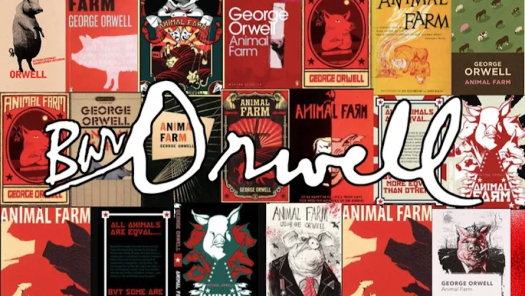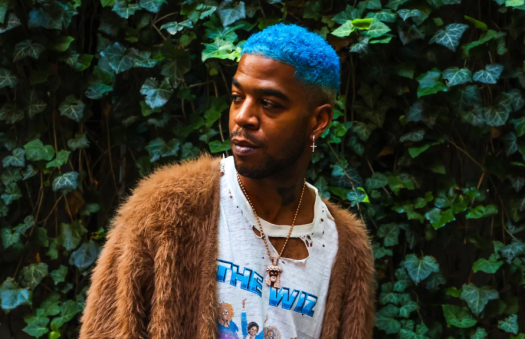Only a few years ago, it was easy to imagine Devon Welsh at the top of the musical world. Majical Cloudz, the heady, minimalist electro-pop project of Welsh and instrumentalist Matthew Otto, had gone from blogosphere darlings to touring with Lorde in only a few years on little more than the strength of their 2013 breakthrough album, Impersonator.
But in 2016, mere months after dropping follow-up Are You Alone? to more praise, the duo abruptly ended the project with little fanfare — merely a final show in their hometown of Montreal and the promise of new music from solo projects.
Disillusioned by the music industry and internal anxiety over the perceived expectations of Majical Cloudz fans, Welsh retreated into songwriter solitude, returning to writing music for himself, unburdened by his newfound popularity.
"When we decided to end the process and finish it all, I was sort of in a mindset of feeling overwhelmed by the music industry and the idea of releasing music and having a platform for it," says Welsh to Exclaim! "Just thinking about how it feels to be releasing records and the pressures that come along with that.
"Trying to make music gets caught up in that relationship that you have to people that like what you do," he continues. "So I guess the last couple of years has been a process of just forgetting about all of that, grounding the experience of making art and being a person in something that comes from my own sense of self rather than from a relationship with an audience."
For Are You Alone?, "our record label was very interested in having a picture of myself on the cover of the album," recalls Welsh. "They had a strong position that that was very important. And I had a strong position that that was not important. That was not part of what that project was, Majical Cloudz. There would not be me on the cover."
From the cover alone, Dream Songs — Welsh's first proper solo album — represents an unburdening of those expectations. On the cover of the self-released effort is an image of a blurry, smiling Welsh, caught between two film frames: a direct reflection of the newfound freedom discovered after years of turmoil and introspection.
"I don't really understand the music industry. I understand the benefits of record labels, but if you're able to self-release your own music, it seems like a good choice. I believe on that principle, as well as it was a good personal choice for me."
As Welsh noted on Twitter, musicians only received 12% of the music industry's $43 billion revenue in 2017.
"The ideal would be that there's nothing involved in putting music out onto the internet and the people who are interested in it can listen to it, engage with it, support me as an artist. I guess that's how I see the music industry. It's the middleman between the people that make things and the people that get meaning out of things. It seems, as time goes on, that the middleman becomes less and less necessary, which I'm happy about. That's why I want to self-release music."
Not only does Dream Songs help Welsh fulfill his aspirations to produce music to his liking with minimal intervention — both directly and projected — from label and audience alike, but the record's 10 songs allow Welsh to communicate ideas about love, relationships, personal truths and the inherent tragedy of the human condition, all set to metaphorical lyrics and sweeping live instrumentation.
Though Majical Cloudz's interpersonal musings featured little more than textured synthesizers, Welsh's instrumental approach hews mostly to the organic, favouring a string quartet over icy electronics.
"When I was writing these [demos], I was using a guitar and I guess I was also sort of imagining strings. I was using a lot of MIDI soft synths that sounded like strings," says Welsh. Welsh teamed up with Braids drummer Austin Tufts, who produced the record and led the effort to replace the string sound-alikes from the demos with the real thing for the album.
The result is a fully realized, cohesive effort that capitalizes on the same idiosyncratic, evocative lyrical imagery that endeared many to Majical Cloudz, but with a warmer, richer sonic palette. Though Welsh has been releasing music since the end of Majical Cloudz, including 2016 solo album Down the Mountain (which Welsh describes as a "demo version of an album") and music with electro-poetry project Belave, Dream Songs is the first to embrace the through-lines and thematic cohesion of his best works, marking the first major achievement in Welsh's post-Majical Cloudz output.
As for his old songs, Welsh doesn't foresee a future in which he'd ever revive them, even during a live performance. "I think it would just feel like covering somebody else's music or something like that, at this point," he admits. "Even near the end of Majical Cloudz, it was strange to play some of the early Majical Cloudz songs because I didn't really relate to them personally anymore."
But though Welsh himself can't relate to his old work, he appreciates the ways in which the songs of Majical Cloudz continue to resonate with fans new and old.
"You have the recordings. I'm grateful that the music is meaningful to somebody, but the recordings are out there if they want to hear them. They exist and they'll exist for a long time, and in the meantime I can keep moving forward."
Dream Songs is out August 24.
But in 2016, mere months after dropping follow-up Are You Alone? to more praise, the duo abruptly ended the project with little fanfare — merely a final show in their hometown of Montreal and the promise of new music from solo projects.
Disillusioned by the music industry and internal anxiety over the perceived expectations of Majical Cloudz fans, Welsh retreated into songwriter solitude, returning to writing music for himself, unburdened by his newfound popularity.
"When we decided to end the process and finish it all, I was sort of in a mindset of feeling overwhelmed by the music industry and the idea of releasing music and having a platform for it," says Welsh to Exclaim! "Just thinking about how it feels to be releasing records and the pressures that come along with that.
"Trying to make music gets caught up in that relationship that you have to people that like what you do," he continues. "So I guess the last couple of years has been a process of just forgetting about all of that, grounding the experience of making art and being a person in something that comes from my own sense of self rather than from a relationship with an audience."
For Are You Alone?, "our record label was very interested in having a picture of myself on the cover of the album," recalls Welsh. "They had a strong position that that was very important. And I had a strong position that that was not important. That was not part of what that project was, Majical Cloudz. There would not be me on the cover."
From the cover alone, Dream Songs — Welsh's first proper solo album — represents an unburdening of those expectations. On the cover of the self-released effort is an image of a blurry, smiling Welsh, caught between two film frames: a direct reflection of the newfound freedom discovered after years of turmoil and introspection.
"I don't really understand the music industry. I understand the benefits of record labels, but if you're able to self-release your own music, it seems like a good choice. I believe on that principle, as well as it was a good personal choice for me."
As Welsh noted on Twitter, musicians only received 12% of the music industry's $43 billion revenue in 2017.
"The ideal would be that there's nothing involved in putting music out onto the internet and the people who are interested in it can listen to it, engage with it, support me as an artist. I guess that's how I see the music industry. It's the middleman between the people that make things and the people that get meaning out of things. It seems, as time goes on, that the middleman becomes less and less necessary, which I'm happy about. That's why I want to self-release music."
Not only does Dream Songs help Welsh fulfill his aspirations to produce music to his liking with minimal intervention — both directly and projected — from label and audience alike, but the record's 10 songs allow Welsh to communicate ideas about love, relationships, personal truths and the inherent tragedy of the human condition, all set to metaphorical lyrics and sweeping live instrumentation.
Though Majical Cloudz's interpersonal musings featured little more than textured synthesizers, Welsh's instrumental approach hews mostly to the organic, favouring a string quartet over icy electronics.
"When I was writing these [demos], I was using a guitar and I guess I was also sort of imagining strings. I was using a lot of MIDI soft synths that sounded like strings," says Welsh. Welsh teamed up with Braids drummer Austin Tufts, who produced the record and led the effort to replace the string sound-alikes from the demos with the real thing for the album.
The result is a fully realized, cohesive effort that capitalizes on the same idiosyncratic, evocative lyrical imagery that endeared many to Majical Cloudz, but with a warmer, richer sonic palette. Though Welsh has been releasing music since the end of Majical Cloudz, including 2016 solo album Down the Mountain (which Welsh describes as a "demo version of an album") and music with electro-poetry project Belave, Dream Songs is the first to embrace the through-lines and thematic cohesion of his best works, marking the first major achievement in Welsh's post-Majical Cloudz output.
As for his old songs, Welsh doesn't foresee a future in which he'd ever revive them, even during a live performance. "I think it would just feel like covering somebody else's music or something like that, at this point," he admits. "Even near the end of Majical Cloudz, it was strange to play some of the early Majical Cloudz songs because I didn't really relate to them personally anymore."
But though Welsh himself can't relate to his old work, he appreciates the ways in which the songs of Majical Cloudz continue to resonate with fans new and old.
"You have the recordings. I'm grateful that the music is meaningful to somebody, but the recordings are out there if they want to hear them. They exist and they'll exist for a long time, and in the meantime I can keep moving forward."
Dream Songs is out August 24.




